From treaty ratification to troop deployment, N. Korea and Russia's close ties pose unprecedented threat
입력 2024.10.18 (23:40)
읽어주기 기능은 크롬기반의
브라우저에서만 사용하실 수 있습니다.
[Anchor]
Since Russia's invasion of Ukraine, North Korea and Russia have rapidly grown closer due to military necessities, and it seems that this troop deployment will further solidify their ties.
Now, the war in Europe is directly affecting Northeast Asia, and the peace and security of the Korean Peninsula are facing new crises and challenges.
Reporter Kim Kyung-jin has analyzed the situation.
[Report]
In a situation where South Korea is defined as an 'enemy state', experts say that it would not have been an easy decision for North Korea
to withdraw more than 10,000 elite combat troops.
Taking such risks, the decision to deploy large-scale troops following arms support is generally analyzed to be based on a treaty between North Korea and Russia, where Russia promised adequate compensation.
The problem is that the compensation provided by Russia could potentially include what we refer to as 'sensitive military technology'.
The provision of intercontinental ballistic missile (ICBM) re-entry technology or nuclear submarine construction technology poses a significant threat to the Korean Peninsula.
Furthermore, there is a possibility that Russia has agreed to provide a kind of 'security umbrella' for North Korea.
[Doo Jin-ho/Director of International Strategy Research at the Korea Institute for Defense Analyses: "In a military crisis situation, the possibility of Russia intervening and exerting influence on the Korean Peninsula has increased, and the security uncertainty of the Korean Peninsula is deepening."]
As the US-South Korea alliance faces off against the North Korea-Russia alliance, the trend of a new Cold War in Northeast Asia is expected to strengthen.
With the front lines in Europe effectively extending to Northeast Asia, the arms race on the Korean Peninsula is bound to intensify.
[Jeon Bong-geun/Honorary Professor at the Korea National Diplomatic Academy: "The currently unfolding war situation on the European front could expand and create a similar deep military confrontation structure in Northeast Asia."]
There is also interest in whether China was aware of and consented to this troop deployment in advance; if not, the North Korea-China relationship could deteriorate further.
KBS News, Kim Kyung-jin.
Since Russia's invasion of Ukraine, North Korea and Russia have rapidly grown closer due to military necessities, and it seems that this troop deployment will further solidify their ties.
Now, the war in Europe is directly affecting Northeast Asia, and the peace and security of the Korean Peninsula are facing new crises and challenges.
Reporter Kim Kyung-jin has analyzed the situation.
[Report]
In a situation where South Korea is defined as an 'enemy state', experts say that it would not have been an easy decision for North Korea
to withdraw more than 10,000 elite combat troops.
Taking such risks, the decision to deploy large-scale troops following arms support is generally analyzed to be based on a treaty between North Korea and Russia, where Russia promised adequate compensation.
The problem is that the compensation provided by Russia could potentially include what we refer to as 'sensitive military technology'.
The provision of intercontinental ballistic missile (ICBM) re-entry technology or nuclear submarine construction technology poses a significant threat to the Korean Peninsula.
Furthermore, there is a possibility that Russia has agreed to provide a kind of 'security umbrella' for North Korea.
[Doo Jin-ho/Director of International Strategy Research at the Korea Institute for Defense Analyses: "In a military crisis situation, the possibility of Russia intervening and exerting influence on the Korean Peninsula has increased, and the security uncertainty of the Korean Peninsula is deepening."]
As the US-South Korea alliance faces off against the North Korea-Russia alliance, the trend of a new Cold War in Northeast Asia is expected to strengthen.
With the front lines in Europe effectively extending to Northeast Asia, the arms race on the Korean Peninsula is bound to intensify.
[Jeon Bong-geun/Honorary Professor at the Korea National Diplomatic Academy: "The currently unfolding war situation on the European front could expand and create a similar deep military confrontation structure in Northeast Asia."]
There is also interest in whether China was aware of and consented to this troop deployment in advance; if not, the North Korea-China relationship could deteriorate further.
KBS News, Kim Kyung-jin.
■ 제보하기
▷ 카카오톡 : 'KBS제보' 검색, 채널 추가
▷ 전화 : 02-781-1234, 4444
▷ 이메일 : kbs1234@kbs.co.kr
▷ 유튜브, 네이버, 카카오에서도 KBS뉴스를 구독해주세요!
- From treaty ratification to troop deployment, N. Korea and Russia's close ties pose unprecedented threat
-
- 입력 2024-10-18 23:40:36
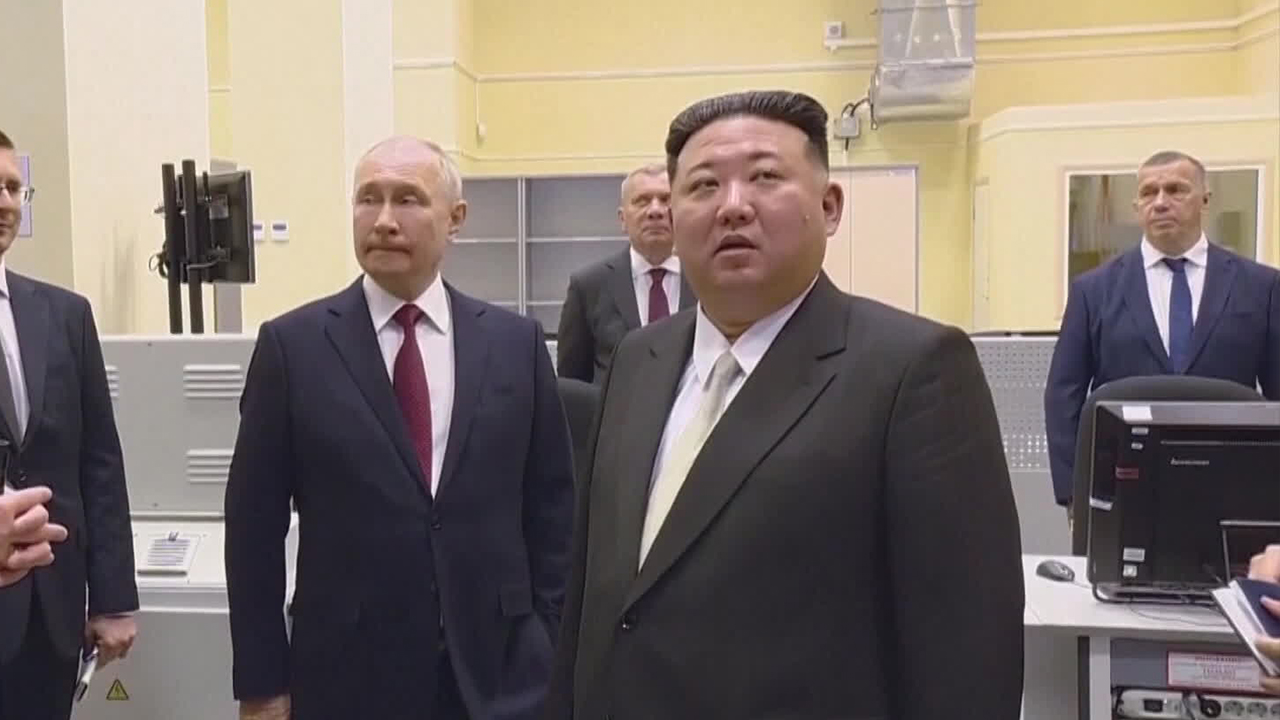
[Anchor]
Since Russia's invasion of Ukraine, North Korea and Russia have rapidly grown closer due to military necessities, and it seems that this troop deployment will further solidify their ties.
Now, the war in Europe is directly affecting Northeast Asia, and the peace and security of the Korean Peninsula are facing new crises and challenges.
Reporter Kim Kyung-jin has analyzed the situation.
[Report]
In a situation where South Korea is defined as an 'enemy state', experts say that it would not have been an easy decision for North Korea
to withdraw more than 10,000 elite combat troops.
Taking such risks, the decision to deploy large-scale troops following arms support is generally analyzed to be based on a treaty between North Korea and Russia, where Russia promised adequate compensation.
The problem is that the compensation provided by Russia could potentially include what we refer to as 'sensitive military technology'.
The provision of intercontinental ballistic missile (ICBM) re-entry technology or nuclear submarine construction technology poses a significant threat to the Korean Peninsula.
Furthermore, there is a possibility that Russia has agreed to provide a kind of 'security umbrella' for North Korea.
[Doo Jin-ho/Director of International Strategy Research at the Korea Institute for Defense Analyses: "In a military crisis situation, the possibility of Russia intervening and exerting influence on the Korean Peninsula has increased, and the security uncertainty of the Korean Peninsula is deepening."]
As the US-South Korea alliance faces off against the North Korea-Russia alliance, the trend of a new Cold War in Northeast Asia is expected to strengthen.
With the front lines in Europe effectively extending to Northeast Asia, the arms race on the Korean Peninsula is bound to intensify.
[Jeon Bong-geun/Honorary Professor at the Korea National Diplomatic Academy: "The currently unfolding war situation on the European front could expand and create a similar deep military confrontation structure in Northeast Asia."]
There is also interest in whether China was aware of and consented to this troop deployment in advance; if not, the North Korea-China relationship could deteriorate further.
KBS News, Kim Kyung-jin.
Since Russia's invasion of Ukraine, North Korea and Russia have rapidly grown closer due to military necessities, and it seems that this troop deployment will further solidify their ties.
Now, the war in Europe is directly affecting Northeast Asia, and the peace and security of the Korean Peninsula are facing new crises and challenges.
Reporter Kim Kyung-jin has analyzed the situation.
[Report]
In a situation where South Korea is defined as an 'enemy state', experts say that it would not have been an easy decision for North Korea
to withdraw more than 10,000 elite combat troops.
Taking such risks, the decision to deploy large-scale troops following arms support is generally analyzed to be based on a treaty between North Korea and Russia, where Russia promised adequate compensation.
The problem is that the compensation provided by Russia could potentially include what we refer to as 'sensitive military technology'.
The provision of intercontinental ballistic missile (ICBM) re-entry technology or nuclear submarine construction technology poses a significant threat to the Korean Peninsula.
Furthermore, there is a possibility that Russia has agreed to provide a kind of 'security umbrella' for North Korea.
[Doo Jin-ho/Director of International Strategy Research at the Korea Institute for Defense Analyses: "In a military crisis situation, the possibility of Russia intervening and exerting influence on the Korean Peninsula has increased, and the security uncertainty of the Korean Peninsula is deepening."]
As the US-South Korea alliance faces off against the North Korea-Russia alliance, the trend of a new Cold War in Northeast Asia is expected to strengthen.
With the front lines in Europe effectively extending to Northeast Asia, the arms race on the Korean Peninsula is bound to intensify.
[Jeon Bong-geun/Honorary Professor at the Korea National Diplomatic Academy: "The currently unfolding war situation on the European front could expand and create a similar deep military confrontation structure in Northeast Asia."]
There is also interest in whether China was aware of and consented to this troop deployment in advance; if not, the North Korea-China relationship could deteriorate further.
KBS News, Kim Kyung-jin.
-
-
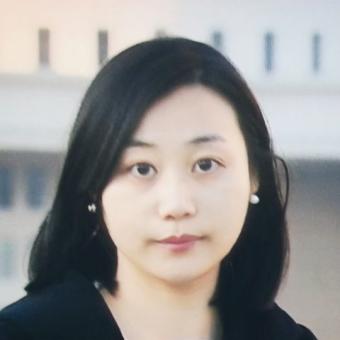
김경진 기자 kjkim@kbs.co.kr
김경진 기자의 기사 모음
-
이 기사가 좋으셨다면
-
좋아요
0
-
응원해요
0
-
후속 원해요
0










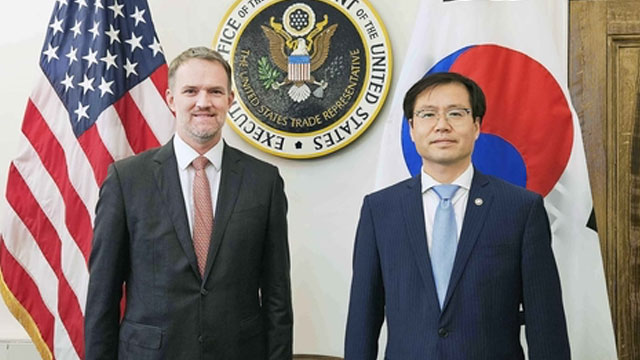
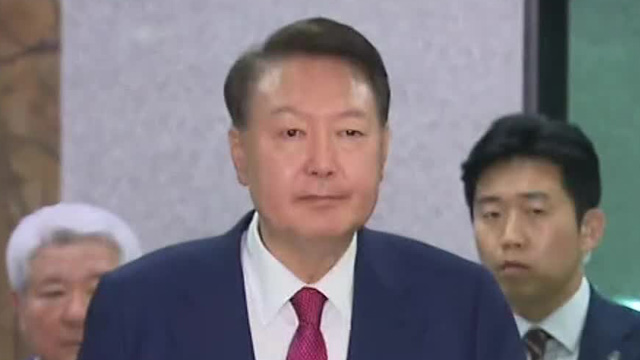
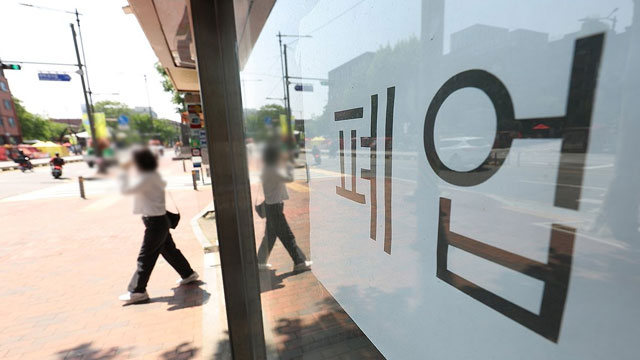
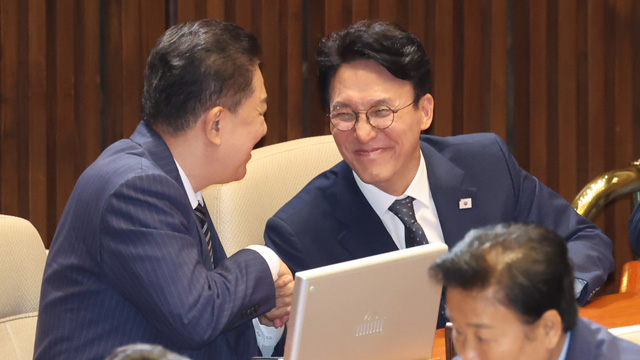

이 기사에 대한 의견을 남겨주세요.